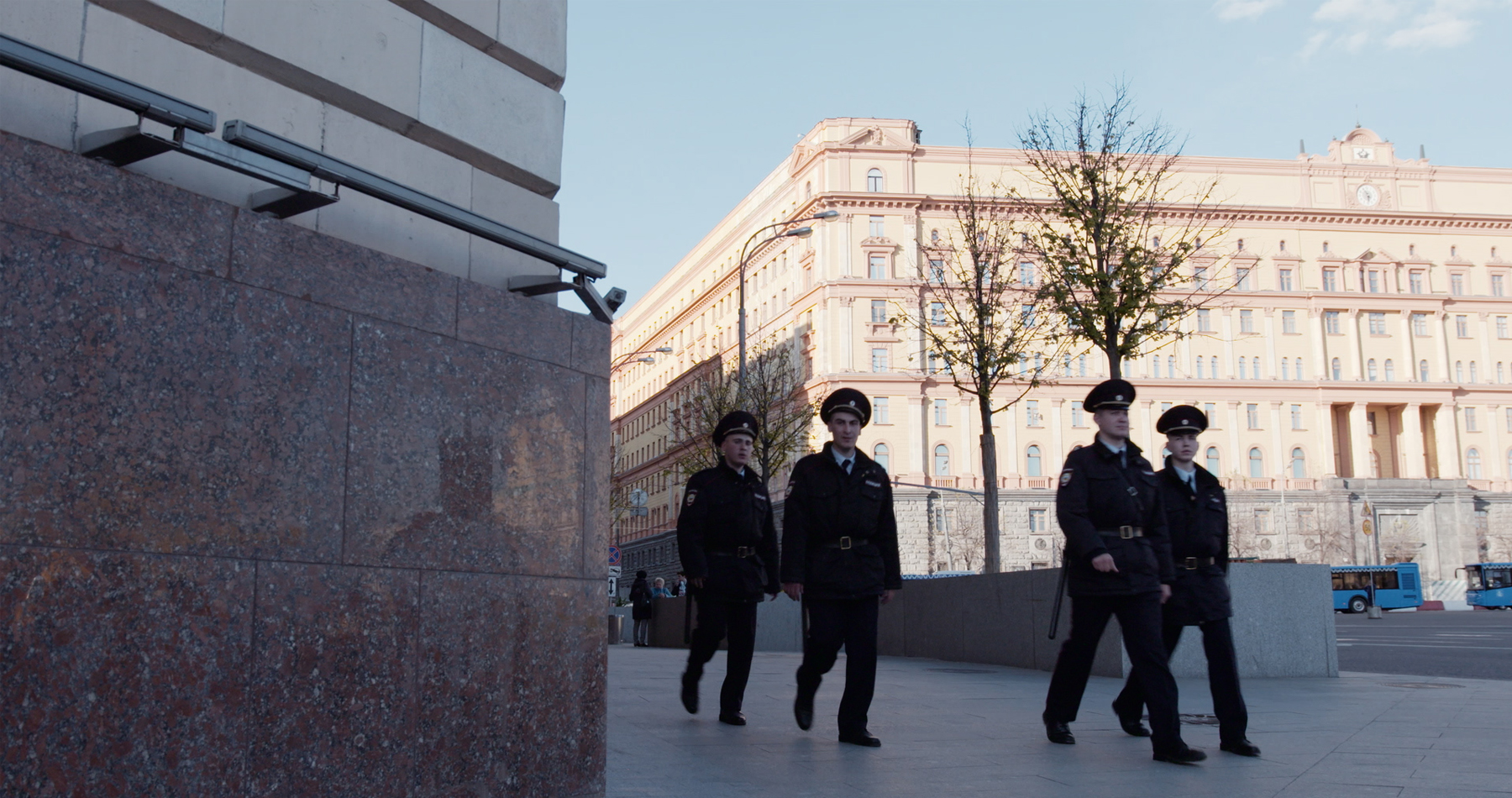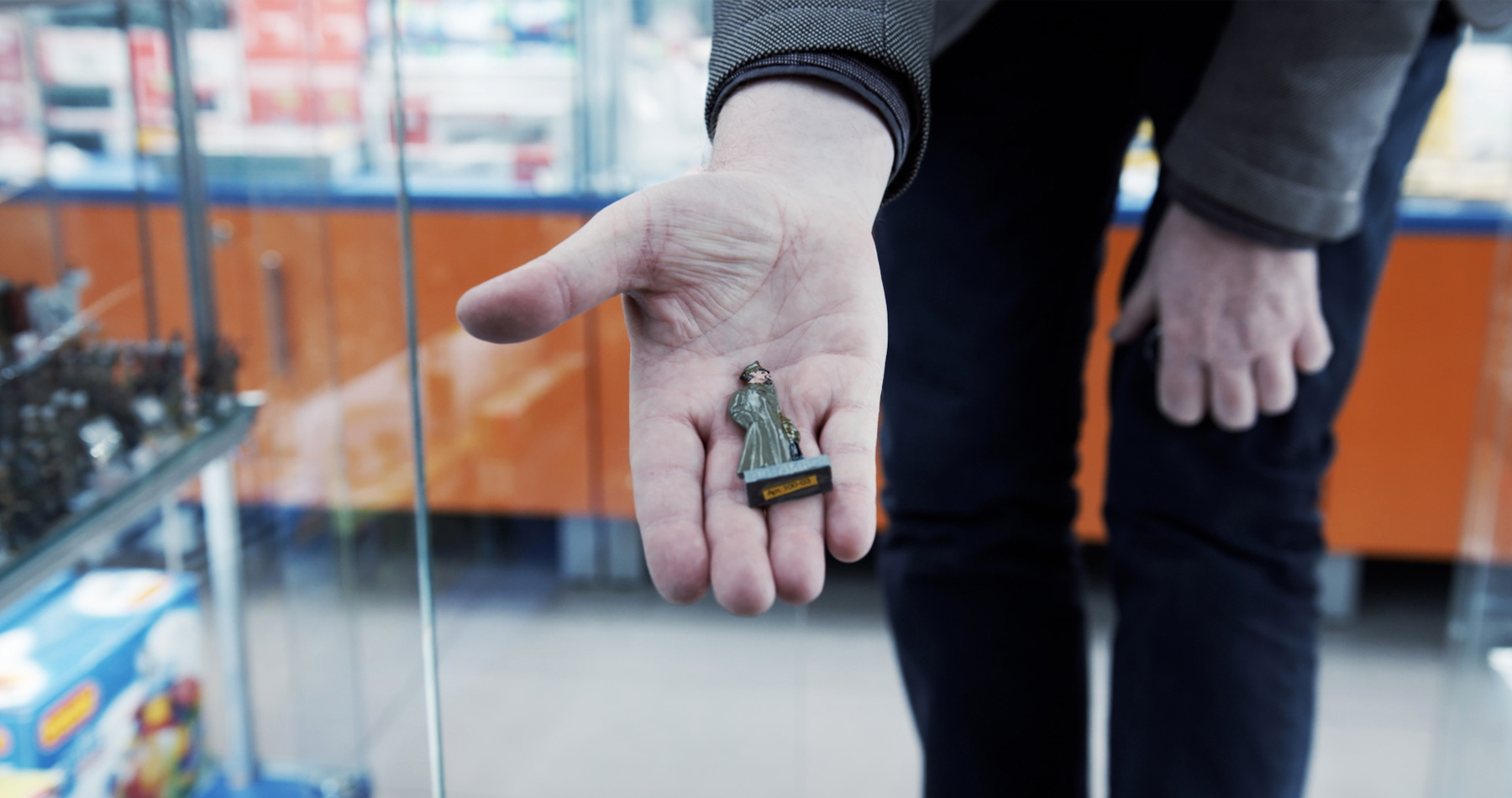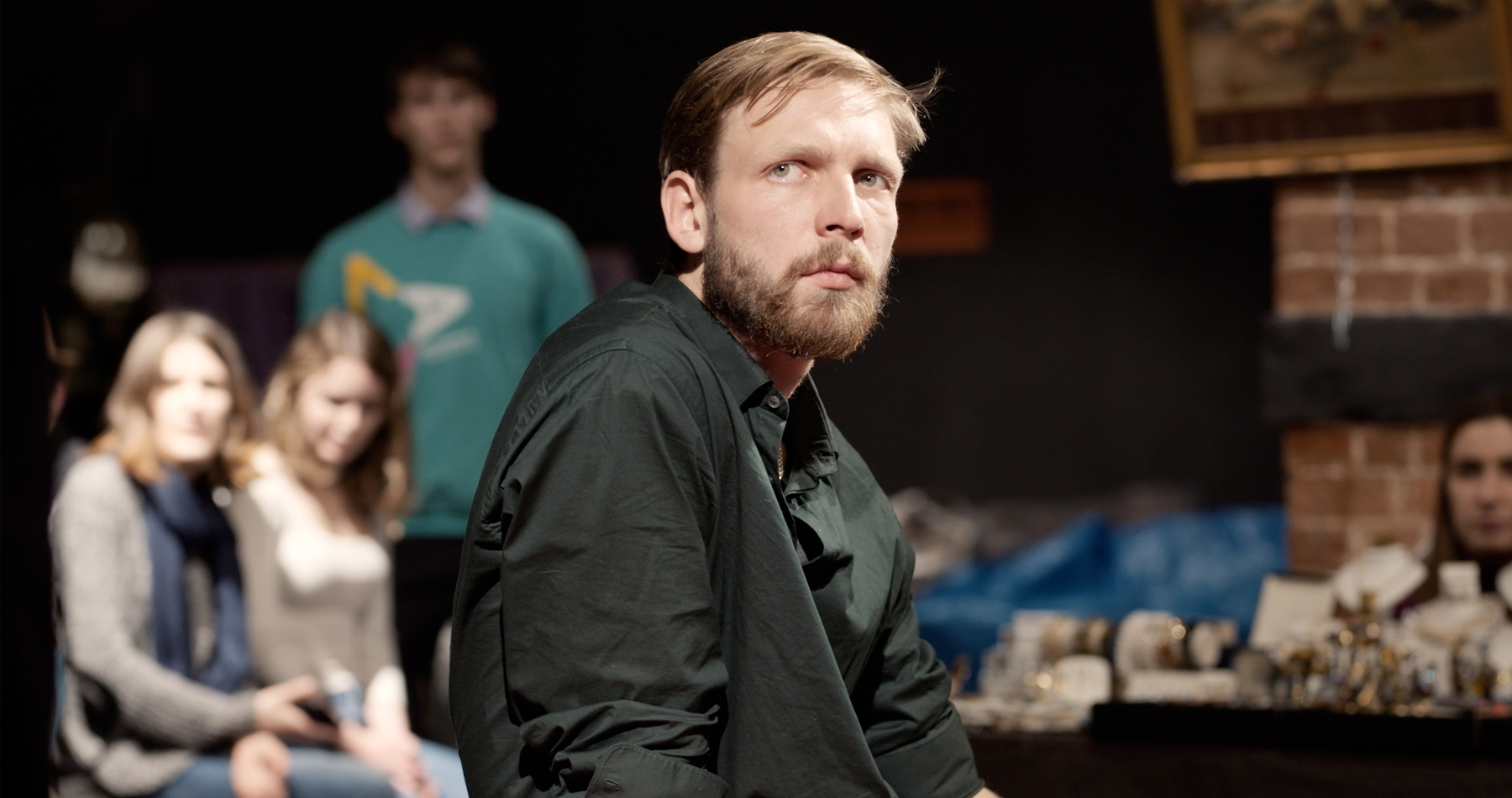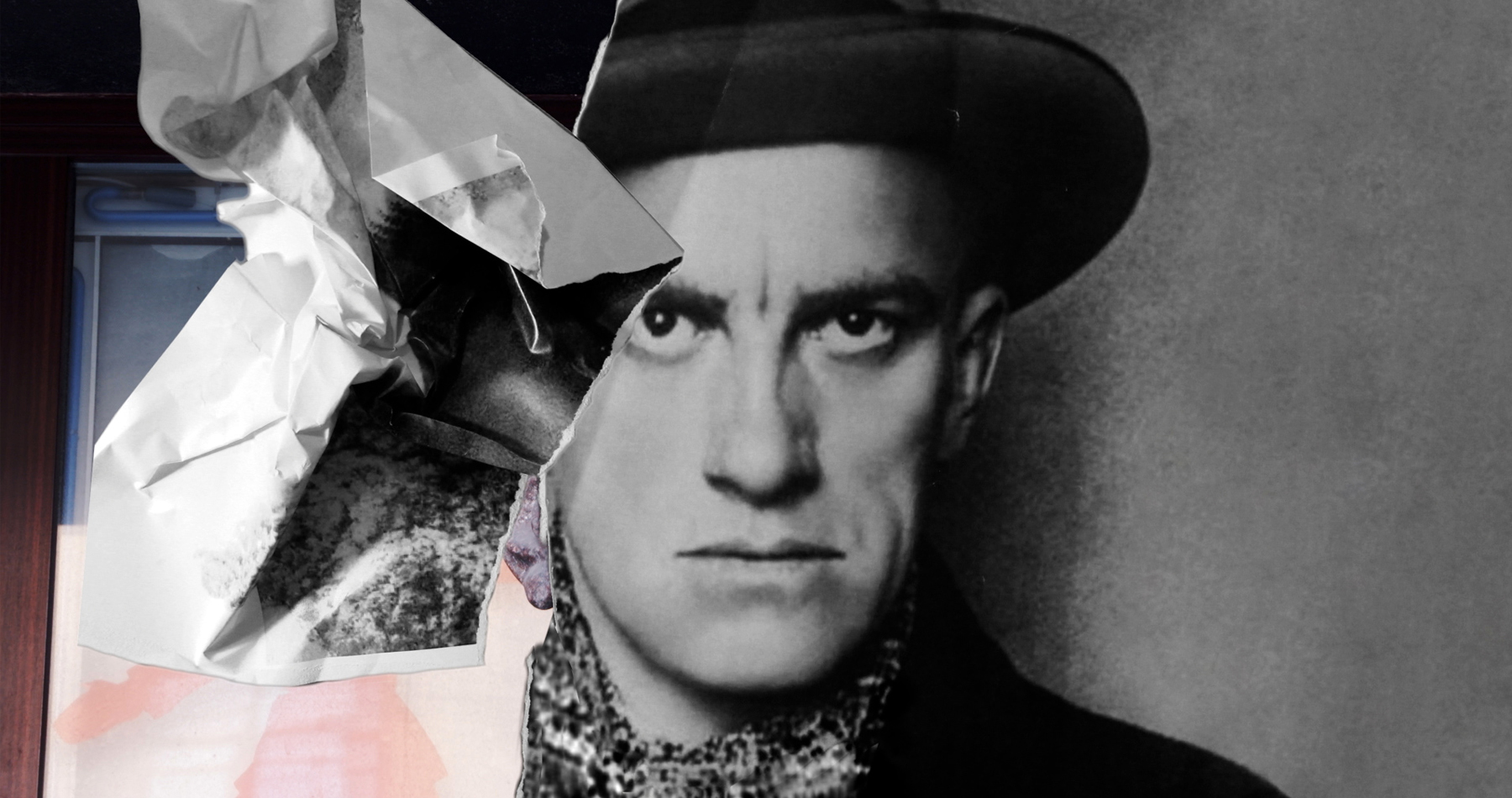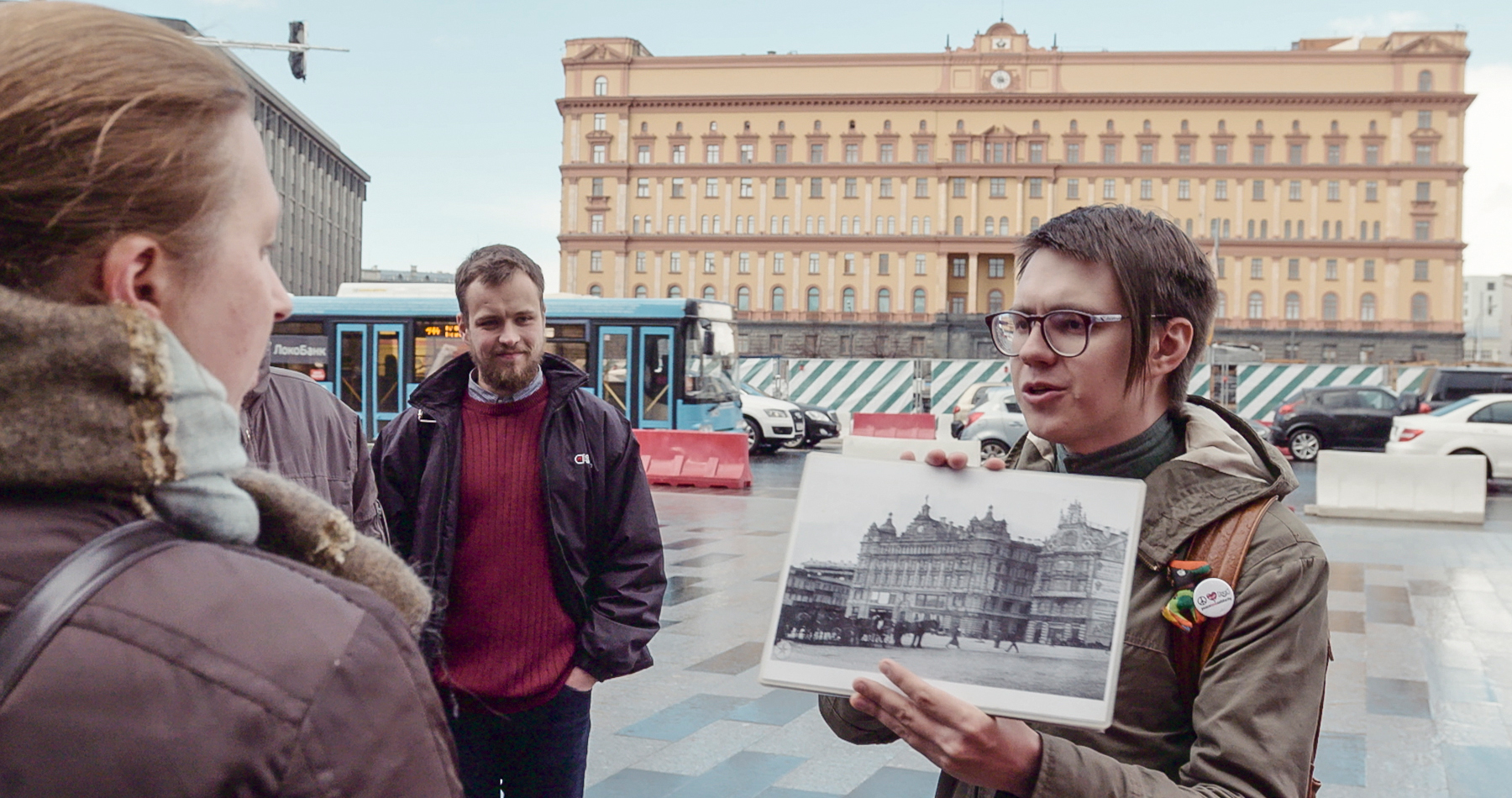Moscow. Lubyanka. A Square with History
Germany | 2018 | 60 Minutes

A square, a city, a society – nowhere can Russian history be experienced better than on Lubyanka Square.
“Moscow. Lubyanka. A Square with History” shows encounters with people on Lubyanka Square in the centre of Moscow and thus offers a picture of Russian society between upheaval and repression. The square has been the headquarters of the secret service from shortly after the October Revolution to the present day. In Russian ears, “Lubyanka” is synonymous with mass arbitrary arrests, torture and shootings. Victims or perpetrators can be found in almost every Russian family. However, Lubyanka Square also symbolises the beginning of a democratic awakening in the early 1990s, which called for a comprehensive reappraisal of the totalitarian past. The monument to the founder of the first secret service after the revolution, Felix Dzerzhinsky, was toppled here, and civil rights activists erected the Solovetsky Stone, the first memorial stone for the victims of political persecution in the Soviet Union. To this day, the repressions of the Soviet state have only been dealt with in fragments. Under President Putin, who himself came from the KGB system, the victims are commemorated, but the perpetrators are largely not discussed.
The filmmaker Kerstin Nickig meets very different people on Lubjanka Square whose past and present are linked to a specific address at this location – including a KGB veteran, a city guide, a toy seller, an urban planner and an activist. The individual encounters come together like a collage to form a picture of the square. The voices of the protagonists reflect Russian society – divided in its view of the past and thus in its idea of the future.
Credits
Author & Director: Kerstin Nickig
Producer: Michael Truckenbrodt
DoP: Piotr Rosolowski
Editing: Karoline Schulz
Sound: Sergej Karlin
Commissioning Editor: Rolf Bergmann
Production Company: TIME PRINTS and Rundfunk Berlin-Brandenburg
Partners & Funding: Bundesstiftung Aufarbeitung der SED-Diktatur

